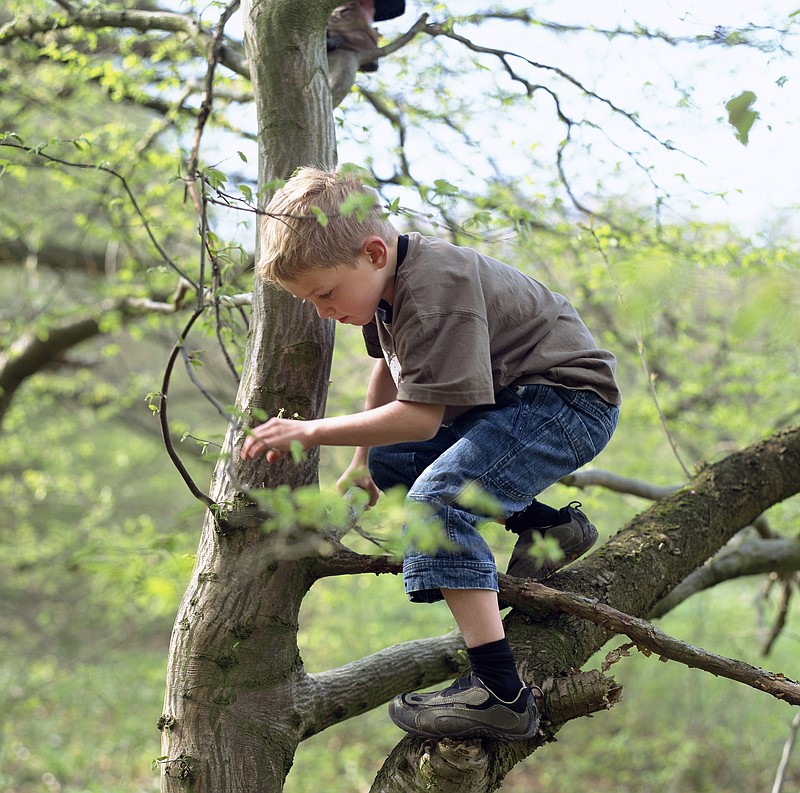Have you ever let your children go outside without having them in sight? If so, you may be a free-range parent.
Oh, don't worry. It's a slight possibility no one is going to report you for being a bad parent. It's just a new term for what used to pass for traditional parenting.
Indeed, "free-range parenting" is a style of raising children in which children have fewer organized activities and are more often allowed to explore the world at their own pace.
The heads of some parents are probably exploding right now, imagining what kind of neglectful parents could allow such freedom. They likely are wondering if any of their children have playmates from which they want to protect theirs from. Others are pondering just what government agency deals with this or if there's a social agency where the parents in question can get some help.
Last weekend, as part of a cable news network's special report on education, a discussion of "free-range parenting" ensued.
Turns out, "free-range" is not a term only used to describe how some chickens, other fowl or various animals are raised in a manner akin to growing organic vegetables. It's now applied to children.
Though the idea has been gaining traction in reaction to the helicopter parenting or overparenting style of the last 25 to 30 years, it took Lenore Skenazy to give the movement a clever name.
The mother of two, a former columnist for the New York Daily News and the author of the book "Free-Range Kids: How to Raise Safe, Self-Reliant Children (Without Going Nuts with Worry)," became notorious several years ago when she wrote "a little column" in the New York Sun about how she had allowed her 9-year-old son to ride the subway alone in New York City.
The book and movement are her response to the reaction, in which she was called "America's Worst Mom," to the column.
"I founded the Free-Range Kids movement," Skenazy says on her website, freerangekids.com, "in part to be one small voice saying, 'Hey! I know we are all scared for our kids! But maybe we don't have to be quite so terrified!' It's an attempt to figure out how we got so much more worried for our kids in just one generation, and to separate the real dangers from the ones foisted upon us by the media, and by other folks with things to sell (like baby safety product manufacturers who have to scare us about a remote danger like "traumatic head injury from toddling" before we'll buy their products, like the "ThudGuard" - a helmet for kids to wear all day when they're learning to walk)."
The news network report last weekend showed a child climbing a tree and testing each branch to see if it would bear the child's weight instead of either not being allowed to climb a tree or having a parent making the decision on which branches would be safe.
Over the footage of the child climbing the tree, the interviewer asked of the expert - which may have been Skezany - what would happen if the child fell. The expert admitted the child might break an arm and would thus have that much more expertise on how to climb a tree the next time.
If you're a baby boomer or an older Generation X adult, think back to exploring the woods behind your house, picking up crawdads in the creek, playing hide-and-seek across three yards and being gone from home for hours at a time - without a parent involved.
Skenazy says United States Department of Justice (DOJ) figures indicate crime rose throughout the 1970s and 1980 and peaked around 1990. Since then, she said, it has been declining.
"Today," she says, "we are back to the crime level of 1970, according to [DOJ] statistics. So - unbelievable as it seems - if you were playing outside as a kid in the '70s or '80s, your kids are actually safer outside than you were!"
Skenazy says she's not against safety - and endorses safety belts, car seats and bike helmets, and teaching children how to cross the street and how to wave their arms to be noticed - but believes they don't "need a security detail every time they leave the house."
Children are safer than we think and probably smarter than we give them credit for. But we have to give them a chance to fail in order to gain the confidence we want them to have when they become adults. Let go - just a bit at first, so it won't hurt - and allow your children to thrive.

